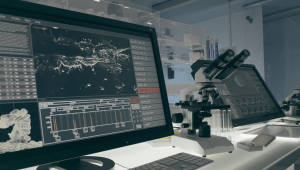Prog Card
Programme Details
Introduction
The programme aims to equip students with the knowledge, skills and attitudes necessary to work effectively and take on management responsibilities in a modern business or public sector environment where information technology and information services are key components of the organisation.
General Entry Criteria
Completion of a Bachelor’s degree at MNQF level 7 or Level 8 in the relevant field.
Core Modules
Digital Design and Development
Group Software Development Project
Information Security
Project Management
Strategy and Governance in IT
CSCT Masters Project
Alternative Criteria
Big Data
Cloud Computing
Social Media and Web Science
- Course Fee: MVR 5,999 per month x 15 months
Upon successful completion of this programme, participants will be able to
Knowledge and Understanding
The nature of information and data, the range of application domains and trends in the application of IT systems
Key principles in the fields of management, information and communication of relevance to information technology
Approaches to systems development and to information management, processing and communication
Appreciation of strategies for information systems introduction, change and risk management and quality assurance
Appreciation of the professional, legal, social, cultural and ethical issues related to computing and IT
Appreciation of security risks and the impact of security breaches on corporate integrity and personal privacy
Awareness of sustainability and environmental issues in IT practice
Appropriate research methods to investigate a specific area of professional interest or concern and to evaluate larger-scale research done by others
Intellectual Skills
Critically evaluate developments and new applications of information and communication technology systems
Evaluate the roles and uses of IT in different business and public sector settings
Analyse and model system problems and develop pragmatic, creative and innovative solutions
Evaluate a variety of methods and approaches to systems development
Recognize a clear research question or hypothesis and thus critically analyse theoretical perspectives relevant to the research process
Evaluate research methodologies, tools and techniques, and the process of research, reflectively
Relate theory and practice in the context of the application domains explored in the chosen option modules
Balance conflicting objectives in the research, selection and development of information systems and supporting technical platforms
Subject/Professional Practice Skills
Design, improve and retire/replace systems incorporating social, informational and technical elements
Develop familiarity with legislation, codes of practice and industry standards relating to information management and computing
Identify and mitigate security risks and risks to successful project implementation
Involve stakeholders in the design, prototyping and evaluation of new digital systems
Manage and optimise software development including efficient coding, testing and integration
Manage projects and people, including distributed teams
Identify information/data requirements that are crucial to organisational performance and develop workflows for data extraction, management, analysis and integration into organisational intelligence and reporting
Design and conduct research in the subject area leading to evidence-based recommendations for change
Transferable Skills and other attributes
Communication skills: to communicate orally or in writing, including, for instance, the results of technical investigations, to peers and/or to “problem owners”
Self-management skills: to manage one’s own time; meet deadlines; to work with others having gained insights into the problems of team-based systems development
Leadership skills: building a vision, encouraging others to participate
IT Skills in context (to use the software in the context of problem-solving investigations, and to interpret findings)
Progression to independent learning: To gain experience of, and to develop skills in, learning independently of structured class work. For example, to develop the ability to use online facilities to further self-study
Awareness of professional literature: to read and use literature sources appropriate to the discipline to support learning activities
Working with others: to be able to work as a member of a team; to be aware of the benefits and problems that teamwork can bring
Related Programmes
Other similar programmes that might interest you.







